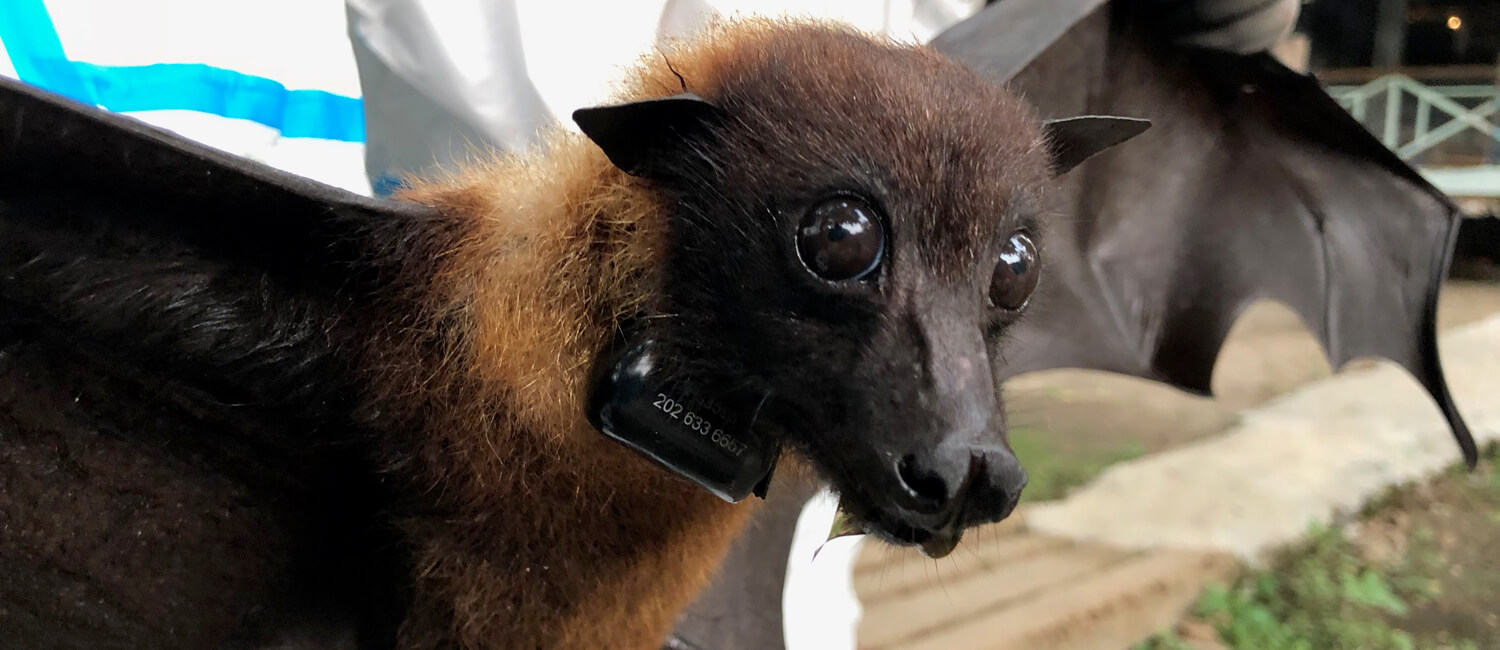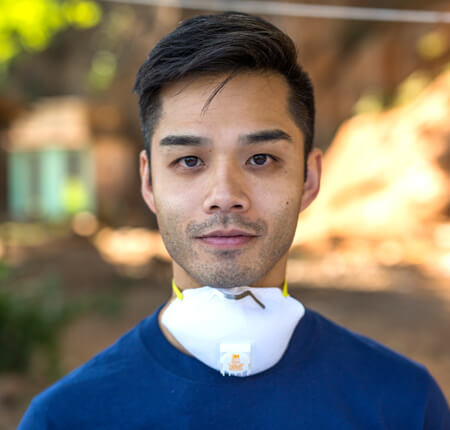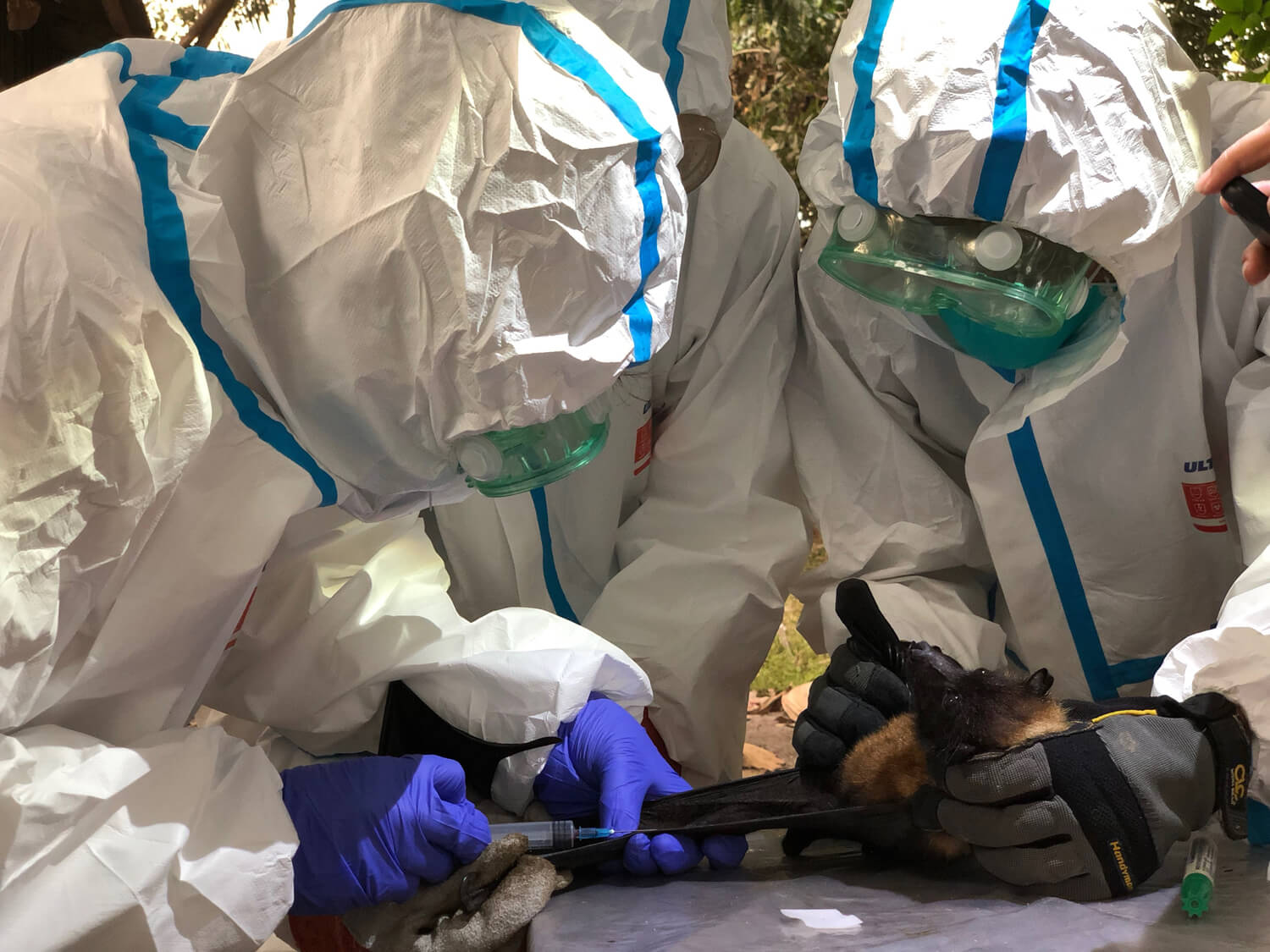
 Marc Valitutto, V'06
Marc Valitutto, V'06
Sure, the COVID-19 crisis is, to quote everyone, “unprecedented.” But unexpected? Not exactly. COVID-19 caught most of us off guard, but it was a pandemic waiting to happen for Marc Valitutto, V’06, and others studying emerging infectious diseases with pandemic potential.
“It’s a tragedy we knew was coming,” said Valitutto. “One Health scientists have seen the writing on the wall since the 2003 SARS outbreak.”
Hunting in Bat Caves for One Health
Valitutto has a bird’s-eye view of looming public health crises as a senior field veterinarian for EcoHealth Alliance, a global environmental health nonprofit organization. Before this, he was wildlife veterinarian for the Smithsonian Conservation Biology Institute’s Global Health Program and Global Lead for the USAID PREDICT-Myanmar project, which aimed to better understand how diseases, such as Zika, Ebola, and coronavirus, are transferred among people and animals.
“Breakouts like COVID-19 are one of the reasons this project existed. Our goal was to essentially find problems before they get out and into the world,” he explained.
Until federal funding was cut for both Smithsonian programs earlier this year, Valitutto spent considerable time in Myanmar conducting emerging infectious disease surveillance.
Donning full PPE — Tyvek suits, goggles, hoods, feet covering, and double gloves — in humid weather of above 110 degrees Fahrenheit, he and his team traveled across the country testing bats and other wildlife. “Somedays after hours in a dark airless cave filled with rats and snakes, I’d ask ‘why am I doing this?’”
His answer was always One Health.
 Dr. Marc Valitutto and team outfit an Indian flying fox bat with a tracking collar to help them monitor where people and animals interact.
Dr. Marc Valitutto and team outfit an Indian flying fox bat with a tracking collar to help them monitor where people and animals interact.
Cultivating a Safe Human/Animal Cohabitation
“Disease and wildlife surveillance is more important than ever. The world’s population has grown exponentially,” Valitutto said. “All these people need resources. They need food. They need farmland. They need livestock. They need places to live. This has massive impact on land and resources.”
As nations create room for more people and tap into earth’s existing resources, humans and animals — especially wildlife once left to a people-free existence — are increasingly living closely together. Added Valitutto, “Animals that have lived with viruses and adapted to them are now coming into contact with humans and livestock. This creates greater risk for exposure and amplification of disease among populations new to the viruses.”
Disease hunting was a slice of the PREDICT program. Valitutto’s team also trained Burmese veterinarians and local health officials to prevent, detect, and control zoonotic infectious disease.
Even before that, Valitutto had to build their trust: “It’s easy for a Westerner to come into an impoverished nation and say, ‘You need to do this, this, and this.’ But it’s not going to be effective if local communities aren’t engaged and on board.”
Trust-building takes time. Valitutto remembers one Myanmar monk guarding a bat cave. “We spent months just talking with him and understanding his concerns. After learning he was fearful of venomous snakes, we bought him a snake hook on Amazon — that did the trick.”
PREDICT’s work in Myanmar paid off: Valitutto and others discovered six novel coronaviruses in bats. Currently, there’s no evidence the viruses threaten human health, but research continues. “Discoveries like this underscore the need for this work,” he said.
A Dream Come True
It’s work that Valitutto dreamed of as a kid. He started working at zoos at age 15 and has never really stopped.
When he wasn’t on the trail of emerging diseases for PREDICT, Valitutto conducted health studies of giant pandas. As COVID-19 took root in China, he was in Chengdu exchanging medical knowledge with local veterinarians to enhance the care and health of captive and wild pandas.
“I love pandas, but I really enjoy virus surveillance,” said Valitutto. “The impact feels greater. I’m able to use my Penn Vet training to share knowledge with people in developing nations and have a worldwide impact.”